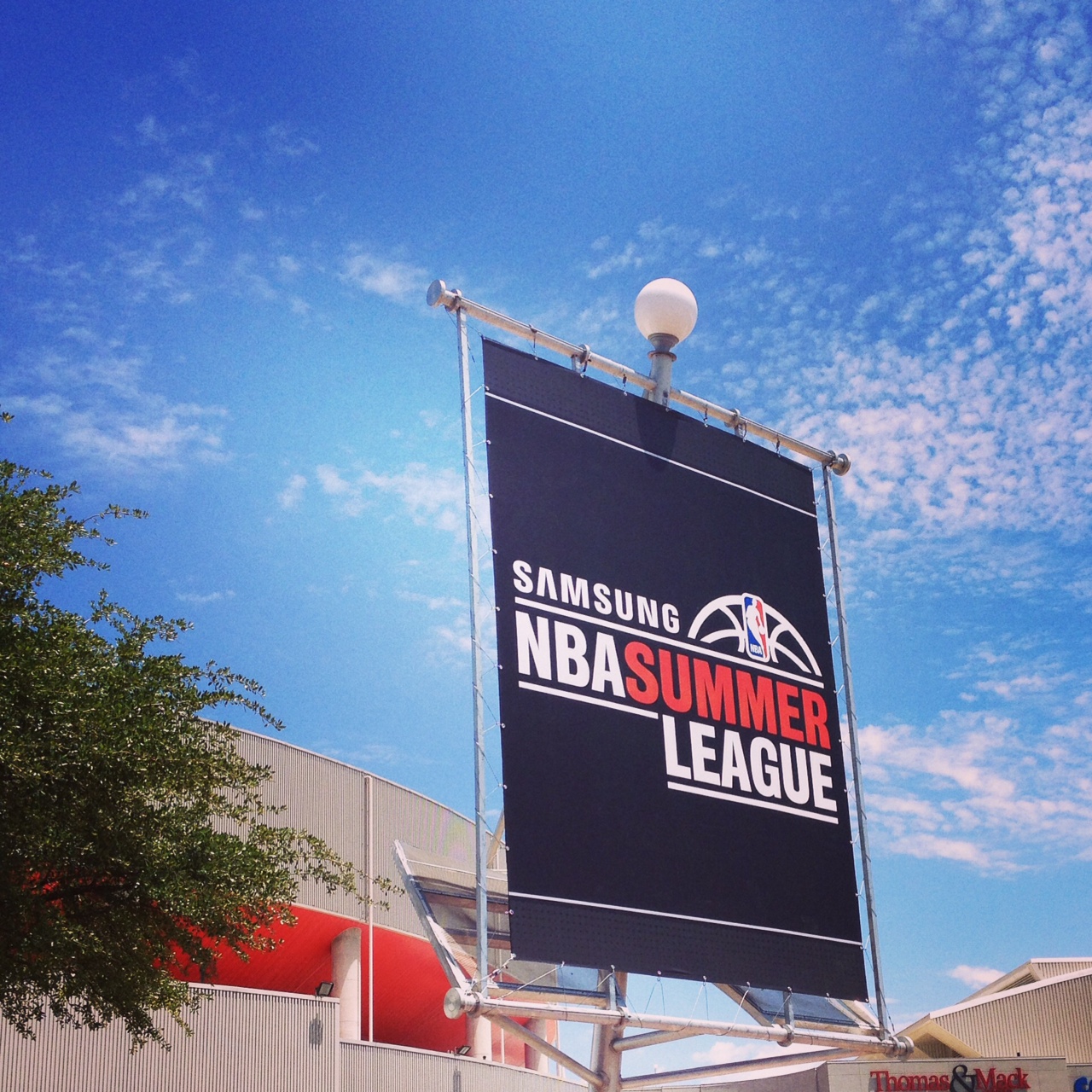NBA Summer League Part 1 - The Relative Value of Talent
I'm just back from a great 8 Man Rotation trip to Las Vegas to take in a few days of the NBA's annual Summer League and tournament that features 24 teams of rookies, less experienced veterans, and guys trying either to hang on to their NBA dreams just a bit longer, or ones trying to crack that elite 450 or so of players that get to call themselves NBA ballers. It was a super fun trip with the boys, and I will have more on some of the really interesting things we saw, heard, and talked about during the trip, as well as a amusing in a watching a car accident kind of way, HR Happy Hour Show and Podcast I recorded with the 8 Man crew while having cheeseburgers and beers.
In the run up to Summer League, much of the talk around NBA circles was centered around free agent player signings and player movement in general. Most notably, the league's best player LeBron James made the biggest news when he signed to return to his original NBA team, the Cleveland Cavaliers, which set off a chain of events including his former teammate Chris Bosh re-signing with the Miami Heat for a massive, 5 years and $118M. This Bosh contract led to tons of internet chatter about whether or not in the wake of losing James, that Miami was indeed overpaying to keep Bosh, their next most important player from the last four years, to maintain some semblance of competitiveness in the near term.
The problem with most of the 'Miami overpaid for Bosh' takes, (and there are plenty of them), is that they usually fail to address the context in which the Bosh contract was given, and the set of circumstances that make Miami's decision to pay Bosh near the maximum amount allowed by the NBA's collective bargaining agreement with the Player's Association. This contextual factors, also apply quite often to the day-to-day decisions that HR/Talent pros have to make every day when tackling compensation issues - either offers to candidates, counter-offers, (probably a bad idea to even try them, but still), and the nuts and bolts of annual compensation package decisions for existing employees. In both cases, these are the kinds of questions that HR pros and NBA GMs need to think about, plus I will hit you with some of the rationale behind the Bosh decision from which (hopefully) you'll see some parallels to your comp-related challenges.
What's the 'right' salary?
What, in the classic 'perfect information' kind of economy that academics like to talk about, would be the 'correct' salary' for Bosh? This is close to the market rate, but not exactly the same, as the 'market' for any NBA player, as well as for that Ruby on Rails developer you can't find, is never truly perfect.
What would the market value (and actually pay) for his/her role, skills, and ability to contribute to an organization?
This is the classic, 'What did the last 3-5 players similar as we can find to Bosh actually get paid in their last contracts?' question. These numbers create an interesting set of data points that may or may not be relevant to your team. If that last team that signed a 17 and 10 guy like Bosh to an insane contract, does that mean necessarily that you should? Or maybe another team got a relative bargain for a different player (like a Tim Duncan), who at this point in his career is more concerned about winning titles than maximizing his personal earnings, and thus accepted a 'discount' on his deal. Don't think that applies to you? I bet you have lots of employees that turn down 10-20% bumps in salary from competing firms because their 'transaction costs' (moving, pulling kids out of school, learning a new corporate political game, etc.), seems too steep. These employees are probably already giving you the home team discount like we hear about in the NBA. Bottom line, the 'market' doesn't represent you, or anyone other specific firm for that matter. It is just more data.
What kind of compensation would this person be likely to get from a specific competitor that might be interested in their services?
This piece of 'market' data is much more interesting (and valuable). In the NBA GMs often have to factor in what might happen if a given player like Bosh were to end up on a specific rival team, and how that move might impact competitive balance (and chances to win). Overpaying to keep a player away from a specific rival can happen, and might be one of the few times in the NBA, (and possibly your business too), that tossing money at a problem makes sense from a business standpoint. This takes more insight and effort than simply looking at the 'market' rate, and knowing the compensation and business strategies of your rivals.
What is this person worth to his/her current company or team?
This is the flip side of the last question - what specific skills, capabilities and knowledge of company-specific operations, products, culture, politics, etc. does the person have that are uniquely relevant to your organization, and need to be factored in to the discussion. With James leaving the Heat, Bosh now assumes the role of the team's #1 star, and the Heat elected to offer him a contract reflective of what #1 stars in the NBA are making. He also knows the city, the coaching staff, the other players on the club, etc. There aren't any 'transaction costs' with retaining Bosh, and there is some value in that. There has been a fair amount of research that suggests that in many fields that employee performance degrades when switching organizations. The amount and importance of local, situational understanding of people, process, and culture can provide employees a performance boost that is immediately lost when they jimp to a new organization.
Simply put, Bosh was probably 'worth' more to the Heat than to many other teams in the league, and while seeming to overpay him, the Heat might have made the smart move for their own team.
With Bosh, and with compensation decisions for just about every other important contributor, context matters.

 Steve
Steve
